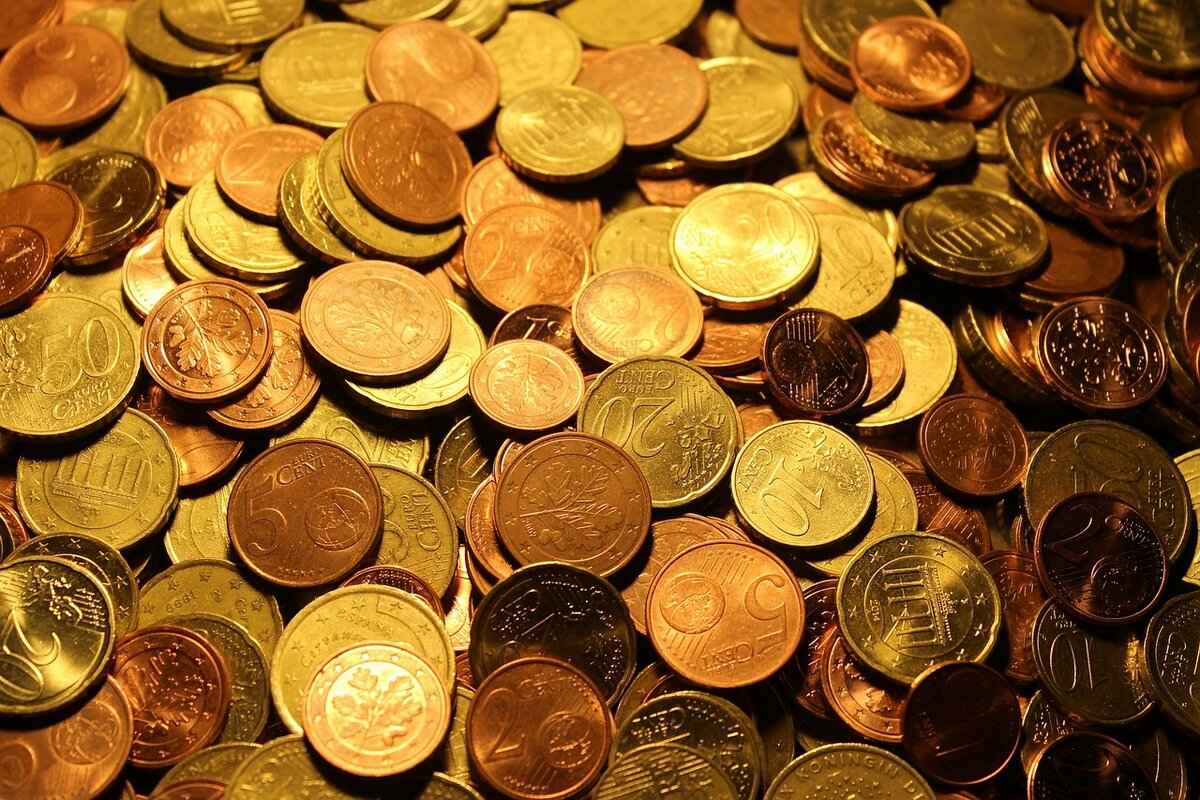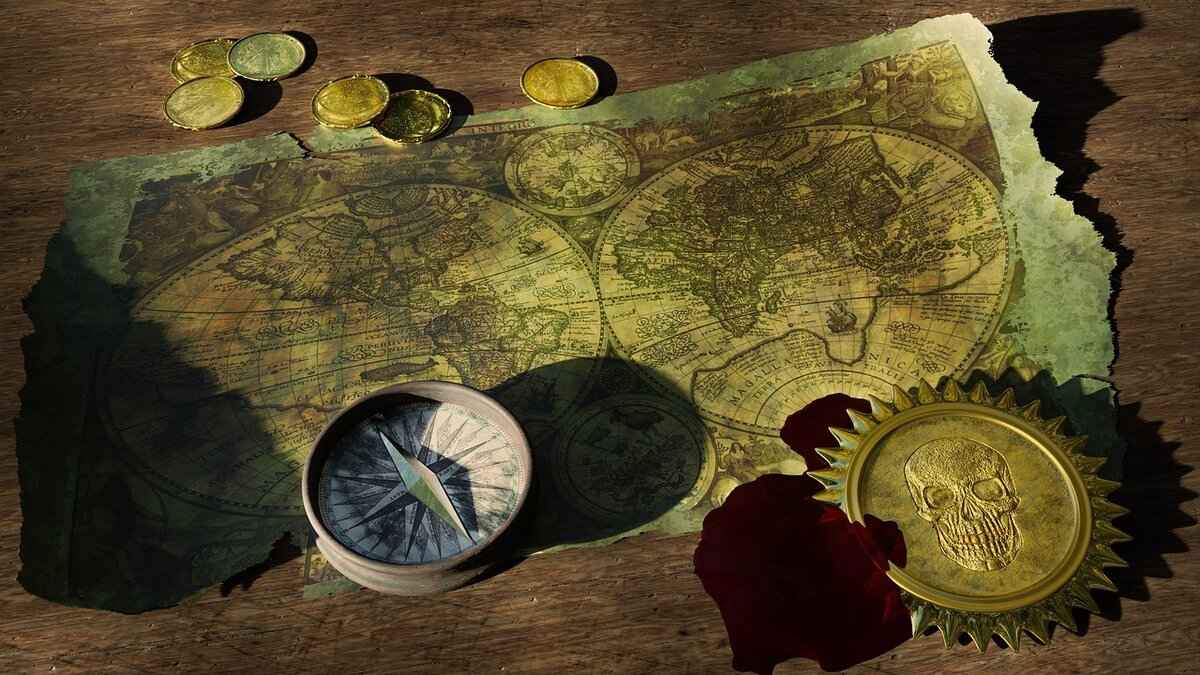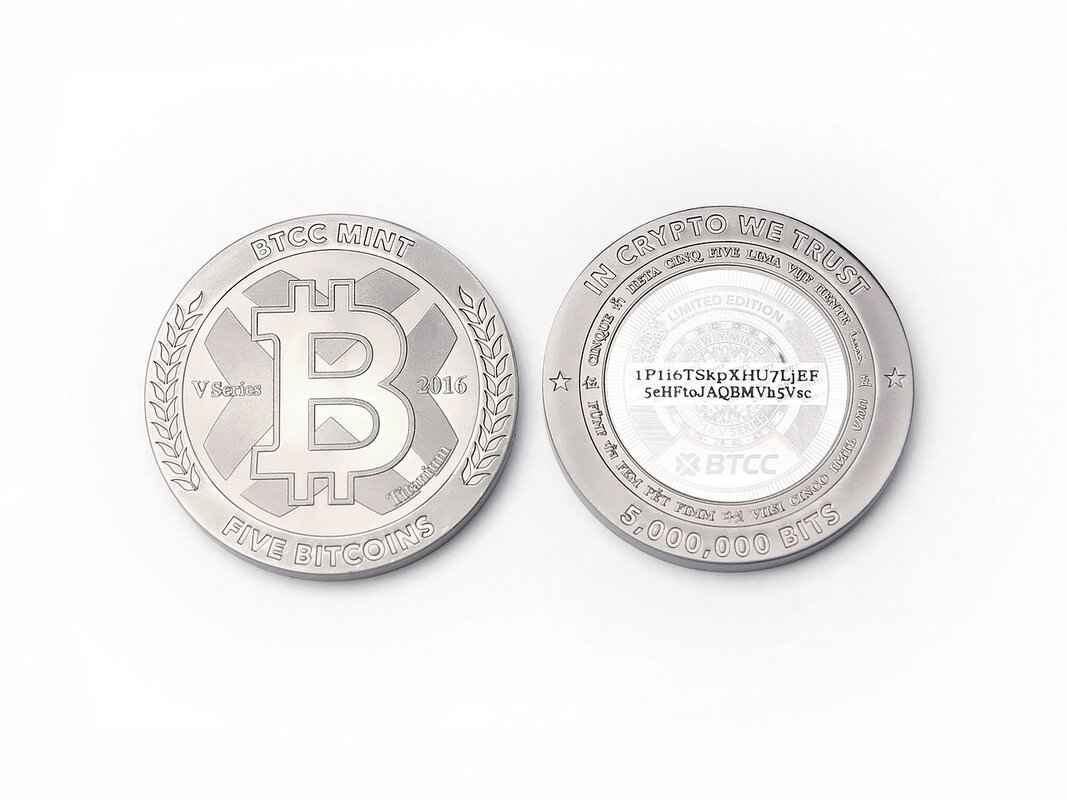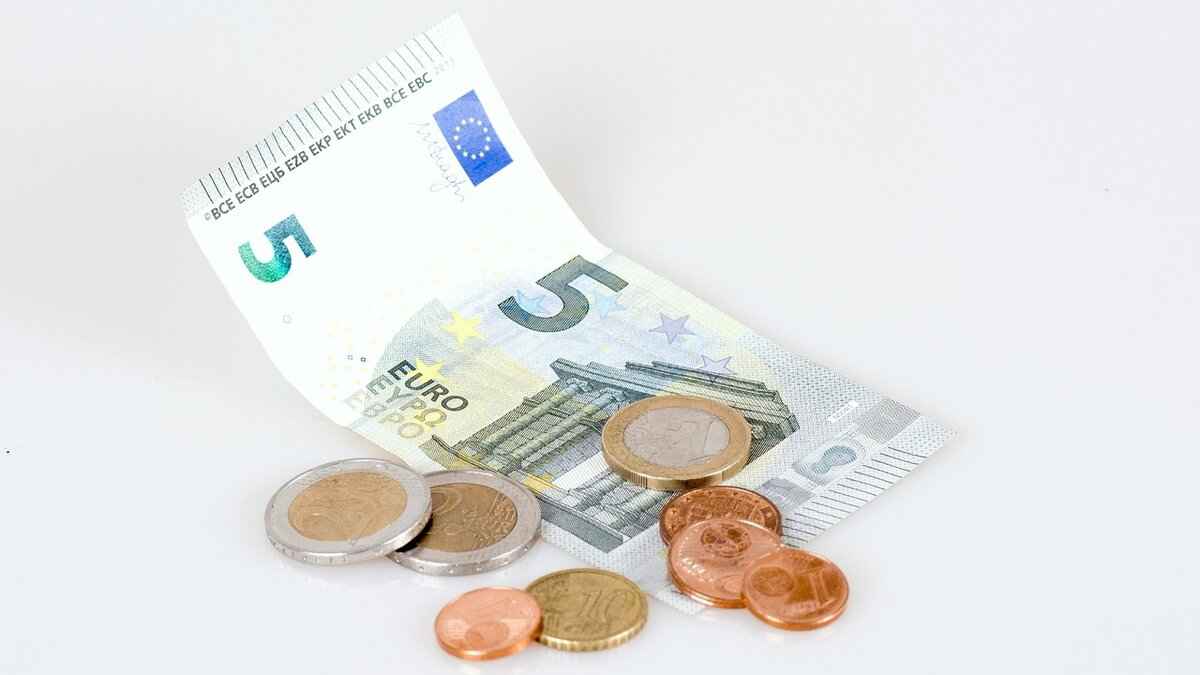This article explores the best platforms for buying and selling rare coins, including Coyyn.com, and offers expert insights into the rare coin market. The world of rare coins is fascinating, filled with history and potential profit. Collectors and investors alike seek to navigate this intricate market, making informed decisions about where to buy and sell their prized possessions.
Understanding Rare Coins
Rare coins are not merely currency; they represent a rich tapestry of history and culture. Collectors often focus on specific types of rare coins, such as gold coins, silver coins, and historical coins. Each type carries its own significance, and understanding these nuances is crucial for any serious collector. The value of rare coins can appreciate significantly over time, making them not just collectibles but also potential investments.
The Importance of Coin Grading
Accurate coin grading is essential for determining a coin’s market value. The grading systems, such as the Sheldon Scale, categorize coins based on their condition, which directly impacts buying and selling decisions. A coin graded higher on this scale is generally more valuable, making it critical for collectors to understand these grading nuances.
Popular Grading Systems
- Sheldon Scale: Ranges from 1 to 70, with higher numbers indicating better quality.
- Professional Coin Grading Services: Organizations like PCGS and NGC provide reliable grading, ensuring that buyers and sellers have a trustworthy assessment of coin quality.
How to Evaluate Coin Value
Evaluating a coin’s worth involves several factors, including rarity, demand, and condition. Collectors should consider recent sales data and consult expert analyses to make informed decisions. Online platforms like Coyyn.com often provide valuable insights and resources for evaluating coin value effectively.
Where to Buy Rare Coins
Finding the right place to purchase rare coins is crucial for collectors. There are various avenues available, each with its advantages and disadvantages. Online marketplaces, such as Coyyn.com, offer convenience and a wide selection, while local coin shops provide personalized service and immediate access to coins.
Online Marketplaces
Online platforms have revolutionized the way collectors buy rare coins. They provide easy access to a vast array of coins, often at competitive prices. However, buyers should be cautious and ensure they are purchasing from reputable sellers to avoid scams.
Local Coin Shops
Local coin shops offer a unique experience, allowing collectors to see and handle coins before purchasing. The personalized service can help buyers gain valuable insights and build relationships with knowledgeable staff.
Where to Sell Rare Coins
Just as important as buying is knowing where to sell rare coins effectively. Various options exist, from auction houses to online platforms, each with its unique benefits.
Auctions and Bidding Platforms
Auction houses can yield high prices for rare coins, especially for unique or highly sought-after pieces. Choosing the right auction house and understanding the bidding process can significantly impact the selling price.
Direct Sales vs. Consignment
When selling rare coins, understanding the difference between direct sales and consignment is crucial. Direct sales can provide immediate cash, while consignment may yield higher profits but requires patience.
Understanding Market Trends
Staying informed about market trends is vital for both buying and selling decisions. Collectors should regularly research market data, attend coin shows, and engage with fellow collectors to stay updated.
Researching Market Data
Utilizing resources for market data, such as online databases and auction results, can provide insights into current trends and help collectors make informed decisions.
Networking with Other Collectors
Connecting with other collectors can offer valuable insights and opportunities. Joining clubs or online forums allows collectors to share knowledge and experiences, enhancing their understanding of the market.
Common Mistakes to Avoid
Even experienced collectors can make mistakes. Avoiding common pitfalls can save both time and money.
Overpaying for Coins
One of the biggest mistakes is overpaying due to lack of research. Conducting thorough research and understanding market values is essential to avoid this issue.
Neglecting Proper Storage
Improper storage can lead to damage and reduce a coin’s value. Employing best practices for storing rare coins, such as using appropriate holders and maintaining a stable environment, is crucial.
Final Thoughts on Rare Coin Collecting
Collecting rare coins can be a rewarding endeavor. By staying informed, understanding the market, and making educated decisions, collectors can navigate this exciting field successfully.

Understanding Rare Coins
Rare coins are more than mere currency; they represent a fascinating intersection of history, art, and investment. Collectors and investors alike are drawn to these unique pieces for their potential to appreciate in value over time. In this section, we will explore the various types of rare coins, their significance in the field of numismatics, and what makes them so appealing to collectors.
- Types of Rare Coins
- Historical Coins: These coins often have significant historical context, such as those minted during important events or by notable figures. Examples include coins from ancient Rome or coins celebrating significant milestones in a nation’s history.
- Mint Error Coins: Coins that have manufacturing errors, such as double strikes or misprints, are highly sought after. These errors can make a coin significantly more valuable than its correctly minted counterparts.
- Limited Edition Coins: Coins that are part of a limited release, such as commemorative coins or those minted for special occasions, often appreciate in value due to their scarcity.
- Gold and Silver Coins: Precious metal coins, especially those made from gold or silver, hold intrinsic value based on their metal content, in addition to their numismatic value.
Significance in Numismatics
Numismatics is the study and collection of currency, including coins, tokens, paper money, and related objects. Within this field, rare coins hold a special place due to their unique characteristics and historical significance. Collectors often focus on specific themes or periods, allowing them to build a collection that tells a story.
The appreciation of rare coins is influenced by several factors, including rarity, demand, and condition. A coin that is rare and in excellent condition can command a much higher price than a more common coin, even if both are from the same era. Moreover, the demand for specific types of coins can fluctuate based on market trends, making it essential for collectors to stay informed.
In addition to their financial value, rare coins often serve as tangible links to the past, allowing collectors to connect with history in a unique way. Each coin has its own story, and understanding this narrative can enhance a collector’s appreciation for their collection.
Furthermore, rare coins can be a form of investment. Many collectors view their collections as a way to diversify their investment portfolios. Unlike stocks or bonds, rare coins can provide a sense of security as they often retain or increase their value over time, even in fluctuating markets.
In summary, rare coins are not just currency; they are a fascinating blend of history, art, and investment potential. Understanding the various types of rare coins and their significance in numismatics can enhance both the collecting experience and the potential for financial gain. As the market continues to evolve, staying informed and engaged will be key for collectors looking to navigate the world of rare coins successfully.

The Importance of Coin Grading
Coin grading is a critical aspect of numismatics, significantly influencing the buying and selling processes for collectors and investors alike. Understanding the grading systems is essential for determining a coin’s value, which can fluctuate based on its condition, rarity, and demand. This section delves into the intricacies of coin grading, the various systems employed, and how they impact market decisions.
Coin grading serves as a standardized method to assess a coin’s quality. The most widely recognized grading system is the Sheldon Scale, which ranges from 1 to 70. A coin graded 70 is considered perfect, while a grade of 1 indicates a coin that is heavily worn and damaged. This scale helps collectors and dealers communicate effectively regarding a coin’s condition, ultimately affecting its market price.
Another important aspect of coin grading is the role of Professional Coin Grading Services (PCGS and NGC). These organizations provide unbiased assessments and encapsulate coins in protective holders, ensuring their condition is preserved. Coins graded by these services often command higher prices due to the trust and reliability associated with their grading. Collectors are more inclined to purchase coins that have been professionally graded, as it minimizes the risk of overpaying for a coin in subpar condition.
Moreover, understanding coin grading is vital for making informed buying and selling decisions. When purchasing a coin, one must consider the grade to determine if the price aligns with its condition. For instance, a high-grade coin from a limited mintage can be significantly more valuable than a lower-grade counterpart. Therefore, collectors should educate themselves on grading standards and seek guidance from reputable sources.
Additionally, the grading process can be subjective, leading to discrepancies in valuations. Different collectors may have varying opinions on a coin’s grade, which can complicate negotiations. To mitigate these challenges, collectors should familiarize themselves with the grading criteria and consult multiple sources to gain a broader perspective on a coin’s value.
In conclusion, coin grading is an indispensable tool for anyone involved in the rare coin market. It not only determines a coin’s value but also influences buying and selling decisions. By understanding grading systems and the importance of professional services, collectors can make more informed choices, ensuring they invest wisely in their collections.
Popular Grading Systems
When it comes to the world of rare coins, understanding the grading systems is crucial for both collectors and investors. provide a standardized way to assess a coin’s quality, which in turn affects its value in the market. This section will explore various grading systems, including the well-known Sheldon Scale, and their significance in the realm of numismatics.
The Sheldon Scale is perhaps the most recognized grading system in the coin-collecting community. Ranging from 1 to 70, this scale provides a numerical representation of a coin’s condition, with higher numbers indicating better quality. For instance, a coin graded 70 is considered perfect and shows no signs of wear, while a grade of 1 indicates a heavily worn coin with significant damage. Understanding this scale helps collectors make informed decisions about buying and selling coins.
Another important grading system is the American Numismatic Association (ANA) grading system, which provides guidelines similar to the Sheldon Scale but includes additional classifications for specific types of coins. The ANA system emphasizes the importance of originality and preservation, which can significantly influence a coin’s marketability. Collectors often refer to this system to gain insights into a coin’s historical context and its aesthetic appeal.
Furthermore, there are professional grading services such as Professional Coin Grading Service (PCGS) and Numismatic Guaranty Corporation (NGC) that offer expert evaluations. These organizations utilize their own grading criteria and often provide encapsulated grading, which protects the coin while displaying its grade. This encapsulation not only enhances the coin’s presentation but also instills confidence in potential buyers, making coins graded by these services more desirable in the marketplace.
In addition to these established grading systems, collectors should also be aware of market trends that can influence grading perceptions. For example, certain coins may experience a surge in popularity, leading to a higher demand and subsequently affecting their grading. Staying informed about market dynamics can help collectors understand how grading impacts the overall value of their collections.
Lastly, it is essential for collectors to recognize that grading is not an exact science. Factors such as lighting, magnification, and even the experience of the grader can influence a coin’s assigned grade. Therefore, it is advisable for collectors to consult multiple sources and consider the opinions of seasoned professionals when assessing a coin’s grade.
In summary, understanding popular grading systems is vital for anyone involved in the rare coin market. The Sheldon Scale, ANA guidelines, and professional grading services all play significant roles in determining a coin’s quality and value. By familiarizing themselves with these systems, collectors can make more informed decisions, ultimately enhancing their collecting experience.
Sheldon Scale Explained
The Sheldon Scale is a widely recognized grading system used in numismatics to assess the quality and condition of coins. Understanding this scale is essential for collectors, as it directly influences the value of their coins. The scale ranges from 1 to 70, with higher numbers indicating better quality and condition. Each grade on the Sheldon Scale corresponds to specific characteristics that help collectors determine the desirability and potential market value of a coin.
Grade 1 represents a coin that is heavily worn and damaged, with little to no detail remaining. This grade is typically assigned to coins that have been in circulation for a long time and show significant signs of wear and tear. Collectors often avoid these coins due to their low value.
As we move up the scale, Grade 10 coins are considered “Good” and may have some identifiable features, though they will still show considerable wear. At this level, coins are often sought after by collectors looking for affordable options but may not command high prices.
In contrast, a coin graded 30 is classified as “Fine,” meaning it retains some detail and has less wear compared to lower grades. This level typically attracts more serious collectors who appreciate the historical significance of a coin.
At the midpoint, Grade 40 indicates a “Very Fine” coin with clear details and minimal wear. Such coins are often considered collectible and can command higher prices in the market.
As we approach the higher end of the scale, Grade 60 signifies an “Uncirculated” coin, which shows no signs of wear and retains its original mint luster. Coins at this level are highly sought after and can fetch substantial prices.
Finally, the pinnacle of the Sheldon Scale, Grade 70, represents a coin that is deemed “Perfect.” These coins are flawless, with no imperfections visible to the naked eye. Collectors prize these coins for their exceptional quality, and they often command the highest prices in auctions and sales.
Understanding the Sheldon Scale is crucial for collectors, as it not only helps in assessing the condition of coins but also plays a significant role in determining their market value. By familiarizing themselves with this grading system, collectors can make informed decisions when buying or selling rare coins, ensuring they achieve the best possible outcomes in their numismatic endeavors.
Professional Coin Grading Services
When it comes to the world of rare coins, the significance of professional coin grading services cannot be overstated. These organizations, such as PCGS (Professional Coin Grading Service) and NGC (Numismatic Guaranty Corporation), play a pivotal role in establishing the authenticity and value of coins in the market. This section delves into their importance, how they operate, and the trust they instill in both buyers and sellers.
Professional grading services offer a standardized assessment of a coin’s condition and quality, which is crucial for collectors and investors alike. The grading process involves a meticulous examination of the coin’s surface, luster, and overall appearance. These services utilize a consistent grading scale, allowing for easy comparison and valuation across the market. The most recognized grading system is the Sheldon Scale, which rates coins from 1 (poor) to 70 (perfect). This system not only helps in determining a coin’s worth but also aids in establishing its market demand.
One of the primary benefits of using a professional grading service is the authentication they provide. Counterfeit coins are a significant concern in numismatics, and the expertise of organizations like PCGS and NGC helps mitigate this risk. By ensuring that a coin is genuine, these services protect collectors from potential losses and enhance buyer confidence. In fact, coins that are graded and encapsulated by these organizations often command higher prices in the market due to the assurance of quality and authenticity.
Moreover, professional grading services contribute to the overall transparency of the rare coin market. With a standardized grading system, buyers can make informed decisions based on the grading assigned to a coin. This transparency fosters trust among collectors and investors, which is essential for a healthy marketplace. When a coin is graded by a reputable service, it comes with a guarantee that can significantly influence its resale value.
Additionally, these grading services offer resources and tools for collectors to stay informed about market trends. They provide access to price guides, auction results, and expert analysis, which can be invaluable for anyone looking to buy or sell rare coins. By staying updated on market conditions, collectors can make more informed decisions, ultimately enhancing their collecting experience.
In conclusion, the role of professional grading services like PCGS and NGC is fundamental in the rare coin market. Their expertise in grading, authentication, and market transparency not only protects collectors but also enhances the overall integrity of the numismatic community. As the demand for rare coins continues to grow, the importance of these services will only increase, making them indispensable for both novice and seasoned collectors.
How to Evaluate Coin Value
Evaluating a coin’s value is a nuanced process that requires a keen understanding of several critical factors. Collectors and investors alike must consider aspects such as rarity, demand, and condition to accurately assess a coin’s worth. This guide will provide practical tips for evaluating coin value effectively, ensuring that collectors make informed decisions.
- Rarity: The rarity of a coin is often the most significant factor affecting its value. Coins that were minted in limited quantities or those that were never widely circulated tend to be more valuable. Researching historical mintage figures and understanding the coin’s place in numismatic history can help collectors determine its rarity.
- Demand: The demand for a specific coin can fluctuate based on trends within the collector community and the broader market. High demand can drive prices up, while a lack of interest may decrease a coin’s value. Monitoring auction results and collector forums can provide insights into current demand levels.
- Condition: The condition of a coin is assessed through grading, which categorizes coins based on their physical state. Coins in pristine condition will command higher prices than those with visible wear or damage. Familiarizing oneself with grading scales, such as the Sheldon Scale, is crucial for understanding how condition impacts value.
Practical Tips for Assessing Coin Worth
- Research Comparable Sales: Look for recent sales of similar coins to gauge market value. Online auction sites and coin dealer websites often provide valuable data on what collectors are willing to pay.
- Consult Expert Grading Services: Professional grading services like the Professional Coin Grading Service (PCGS) or Numismatic Guaranty Corporation (NGC) can provide an unbiased assessment of a coin’s condition, which is essential for establishing its value.
- Join Collector Communities: Engaging with other collectors through clubs or online forums can enhance your understanding of coin values. Experienced collectors often share insights about market trends and valuation tips.
- Stay Informed on Market Trends: The rare coin market can be volatile. Keeping up with news, publications, and changes in market demand will help you make educated decisions regarding your collection.
In conclusion, evaluating a coin’s value requires a multifaceted approach. By considering rarity, demand, and condition, and utilizing practical tips for assessment, collectors can make informed decisions that will benefit their collections. Understanding the intricacies of coin valuation is essential for anyone looking to buy, sell, or trade rare coins effectively.

Where to Buy Rare Coins
Finding the right place to buy rare coins is crucial for collectors looking to expand their collections or invest wisely. With the growing interest in numismatics, a variety of platforms and marketplaces have emerged, each offering unique advantages. This section will explore the best options available for purchasing rare coins, ensuring that collectors can make informed decisions.
Online platforms have revolutionized the way collectors purchase rare coins. Websites like Coyyn.com provide a vast selection of coins from various eras and regions, allowing collectors to browse and compare options conveniently. The benefits of shopping online include:
- Accessibility: Online marketplaces are available 24/7, enabling collectors to shop at their convenience.
- Variety: A wide range of coins is available, often including rare finds that may not be present in local shops.
- Price Comparison: Online platforms allow easy price comparisons, helping collectors find the best deals.
However, it is essential to consider potential drawbacks, such as the inability to physically inspect coins before purchase. Therefore, always check the seller’s reputation and read reviews to ensure a secure transaction.
For those who prefer a more tactile experience, local coin shops offer a personalized touch. Visiting a brick-and-mortar store provides the opportunity to:
- Inspect Coins: Collectors can physically examine the coins, assessing their condition and authenticity.
- Receive Expert Advice: Shop owners often have extensive knowledge and can provide valuable insights into the coins’ history and value.
- Build Relationships: Developing a rapport with local dealers can lead to better deals and exclusive offers.
While local shops may have a more limited selection compared to online marketplaces, they can be invaluable for building a collection and gaining expert knowledge.
Attending coin shows and expos is another excellent way to buy rare coins. These events gather numerous dealers and collectors, offering a unique environment to:
- Network: Meeting other collectors and dealers can lead to valuable connections and insights.
- Find Unique Coins: Many dealers bring rare and unique coins exclusively to these events.
- Negotiate Prices: Face-to-face interactions often allow for price negotiations, potentially leading to better deals.
Coin shows provide an immersive experience, allowing collectors to engage with the community while searching for rare additions to their collections.
Participating in coin auctions can also be an exciting way to acquire rare coins. Auctions often feature high-value items with the potential for significant appreciation. Key points to consider include:
- Research: Understanding the auction process and researching the coins beforehand is crucial for making informed bids.
- Set a Budget: Auctions can become competitive, so it’s essential to establish a budget to avoid overspending.
- Understand Fees: Be aware of any buyer’s premiums or fees associated with the auction, as these can affect the total cost.
While auctions can yield fantastic finds, they require careful planning and strategy to ensure a successful purchase.
In conclusion, whether you choose to buy rare coins online, from local shops, at coin shows, or through auctions, each option has its advantages. By understanding these avenues, collectors can enhance their purchasing experience and build a remarkable collection of rare coins.
Online Marketplaces
In today’s digital age, have revolutionized the way collectors buy and sell rare coins. Platforms like Coyyn.com offer a convenient and accessible avenue for enthusiasts to explore a vast selection of coins from the comfort of their homes. However, while the benefits of shopping online are numerous, there are also some challenges that collectors should be aware of.
- Convenience: One of the most significant advantages of online platforms is the ease of access. Collectors can browse through numerous listings at any time, making it easier to find specific coins or explore new additions to their collection.
- Wider Selection: Online marketplaces typically offer a broader range of coins than local shops. This variety allows collectors to discover rare finds that may not be available in their local area.
- Price Comparisons: Shopping online enables collectors to compare prices across different platforms effortlessly. This feature is crucial for ensuring that buyers get the best deals on their purchases.
However, shopping online is not without its downsides:
- Lack of Physical Inspection: One of the main drawbacks of online shopping is the inability to physically inspect coins before purchasing. This limitation can lead to uncertainties regarding the coin’s condition and authenticity.
- Shipping Risks: When buying coins online, collectors must consider the risks associated with shipping. Coins can be damaged during transit if not adequately packaged, potentially leading to loss in value.
- Scams and Fraud: The online marketplace is not immune to fraudulent activities. Buyers must exercise caution and conduct thorough research to ensure they are dealing with reputable sellers.
To mitigate these risks, collectors are encouraged to look for platforms that offer secure payment options and buyer protection policies. Additionally, reading reviews and checking seller ratings can provide valuable insights into the reliability of the seller.
In summary, while online marketplaces like Coyyn.com present a range of benefits for rare coin collectors, it is essential to approach them with caution. By understanding both the advantages and potential pitfalls, collectors can make informed decisions and enhance their collecting experience.
Local Coin Shops
When it comes to purchasing rare coins, provide a unique and valuable experience that online platforms often cannot match. These brick-and-mortar establishments offer personalized service, immediate purchases, and a tangible connection to the world of numismatics. In this section, we will explore the numerous benefits of buying from local coin shops and why they should be a go-to option for collectors.
Personalized Service
One of the key advantages of shopping at local coin shops is the personalized service that customers receive. Unlike online platforms, where interactions are often impersonal and automated, local shops allow collectors to engage directly with knowledgeable staff. This personal touch can be invaluable, especially for novice collectors who may have questions about specific coins, grading, or market trends. The staff at these shops often have years of experience and can provide insights that can help buyers make informed decisions.
Immediate Purchases
Another significant benefit of local coin shops is the ability to make immediate purchases. When you find a coin you love, you can buy it on the spot without waiting for shipping or dealing with potential online fraud. This immediacy not only satisfies the collector’s desire for instant gratification but also allows you to inspect the coin closely before making a commitment. You can assess its condition, weight, and overall appeal, ensuring that you’re making a sound investment.
Building Relationships
Shopping at local coin shops also allows collectors to build lasting relationships with shop owners and fellow collectors. These connections can lead to valuable networking opportunities, access to exclusive sales, and insights into upcoming trends in the coin market. A strong relationship with a local dealer can also provide peace of mind, knowing that you are working with someone who has your best interests at heart.
Support for Local Economy
By purchasing coins from local shops, collectors are also supporting their local economy. This support helps small businesses thrive and contributes to the community’s overall health. In a world increasingly dominated by online shopping, investing in local businesses fosters a sense of community and encourages the preservation of local culture and heritage.
Variety of Inventory
Local coin shops typically carry a diverse inventory of coins, ranging from common collectibles to rare finds. This variety allows collectors to explore different types of coins they may not encounter online. Furthermore, local shops often have unique items that are not listed on major online marketplaces, providing an exciting treasure hunt experience for collectors.
Educational Opportunities
Many local coin shops offer educational resources, including workshops and seminars, which can be beneficial for both novice and experienced collectors. These events provide valuable knowledge about coin collecting, grading, and market trends, enhancing the overall collecting experience. Engaging in these educational opportunities can deepen one’s appreciation for the hobby and improve collecting skills.
In summary, local coin shops provide a host of benefits that can enhance the coin buying experience. From personalized service and immediate purchases to opportunities for education and community engagement, these shops play a vital role in the world of numismatics. For collectors seeking to enrich their journey, visiting a local coin shop is an excellent choice.

Where to Sell Rare Coins
Selling rare coins can be just as crucial as acquiring them. Understanding the best avenues for selling can maximize your profits and ensure a smooth transaction. This section outlines various platforms and methods to effectively sell rare coins.- Online Marketplaces
- Auction Houses
- Local Coin Shops
- Coin Shows and Expos
- Consignment Sales
- Direct Sales to Collectors
Online platforms like Coyyn.com have revolutionized how collectors sell their coins. These marketplaces provide a wide reach, allowing sellers to connect with potential buyers across the globe. The convenience of listing your coins online, along with detailed descriptions and images, can attract serious collectors. However, it’s essential to research the platform’s fees and policies, as these can impact your overall profit.
Auction houses are another viable option for selling rare coins. They often have a clientele that is specifically interested in high-value collectibles. When choosing an auction house, consider their reputation, commission fees, and the types of coins they specialize in. Auctions can generate competitive bidding, potentially leading to higher sale prices. However, be prepared to wait for the auction date and understand that there may be additional costs involved.
For those who prefer face-to-face transactions, local coin shops offer personalized service. Selling to a shop can be quick and straightforward, allowing you to receive immediate payment. However, it’s crucial to understand that local shops may offer lower prices compared to online sales or auctions, as they need to resell the coins at a profit.
Attending coin shows can provide a unique opportunity to sell your rare coins directly to collectors and dealers. These events often attract serious buyers, and the atmosphere can facilitate negotiations. Make sure to prepare your coins for display and have a clear understanding of their values to engage effectively with potential buyers.
Consignment sales involve placing your coins in the hands of a dealer or auction house, who will sell them on your behalf. This option can be beneficial if you lack the time or expertise to sell the coins yourself. However, it’s important to understand the terms of the consignment agreement, including commission rates and the duration of the consignment period.
Networking with fellow collectors can lead to direct sales opportunities. Joining numismatic clubs or online forums can help you connect with interested buyers. This method can often yield better prices as it eliminates middlemen, but it requires effort in building relationships and trust within the community.
Before selling your rare coins, it’s essential to conduct thorough research to determine their current market value. Factors such as rarity, demand, and condition play significant roles in pricing. Additionally, keeping abreast of market trends can help you decide the best time to sell. By understanding the various avenues available and employing effective strategies, you can maximize your selling potential and ensure a successful transaction.
Auctions and Bidding Platforms
play a crucial role in the rare coin market, offering collectors and sellers a dynamic environment to engage in transactions. When it comes to selling rare coins, the choice of auction house or bidding platform can significantly influence the final sale price. This section will guide you through the essential factors to consider when selecting the right auction for your rare coins.
First and foremost, it is important to research the auction houses or platforms available. Each has its own specialties and target audiences. For instance, some auction houses focus on high-end collectibles, while others cater to a broader market. Understanding the niche of an auction house can help you determine if your coin will attract the right bidders.
Another key factor is the reputation of the auction house. Look for platforms with a proven track record of successful sales in rare coins. Reading reviews and testimonials from previous sellers can provide insights into the auction house’s reliability and effectiveness. Additionally, consider their marketing strategies; a well-promoted auction can attract more bidders, potentially driving up the final sale price.
Fees and commissions are also critical to evaluate. Most auction houses charge a seller’s commission, which can vary significantly. Understanding these fees upfront will help you calculate your potential profits. Some platforms may offer lower commissions but might not have the same level of exposure, which could affect your sale outcome.
Timing is another essential element in the auction process. Seasonality can impact the demand for rare coins. Certain times of the year may see more active bidding, while others may be slower. Researching past auction results can help you identify trends in bidding activity, allowing you to choose the best time to list your coins.
Furthermore, consider the type of auction format offered. Some platforms utilize live auctions, while others may use online bidding systems. Each format has its pros and cons; for instance, live auctions can create a sense of urgency and competition, while online auctions may attract a wider audience. Decide which format aligns best with your goals and the nature of your coins.
Lastly, don’t overlook the importance of professional appraisal. Many auction houses offer appraisal services, which can help you understand the market value of your coins before selling. Having an expert assess your coins can provide you with a realistic expectation of their worth and help you set appropriate reserve prices.
In summary, choosing the right auction house or bidding platform involves thorough research and consideration of various factors, including reputation, fees, timing, auction format, and professional appraisal services. By taking the time to evaluate these aspects, you can increase your chances of achieving a successful sale for your rare coins.
Direct Sales vs. Consignment
When it comes to selling rare coins, understanding the difference between direct sales and consignment is crucial for maximizing profits. Each method has its own set of advantages and disadvantages that can significantly impact the final sale price and overall experience for both sellers and buyers.
What Are Direct Sales?
In direct sales, the seller retains full control over the pricing and transaction process. This method allows sellers to set their own prices based on personal valuation and market research. One of the primary advantages of direct sales is the potential for higher profits, as sellers can avoid commission fees typically associated with consignment sales. Additionally, sellers can negotiate directly with buyers, which can lead to more favorable terms.
However, direct sales also come with challenges. Sellers must invest time and effort into marketing their coins, finding potential buyers, and handling transactions. This can be particularly daunting for those new to the rare coin market or who lack experience in negotiation. Furthermore, the seller assumes all the risks, including the possibility of not selling the coin at all.
What Is Consignment?
On the other hand, consignment involves partnering with a dealer or auction house to sell the coin on the seller’s behalf. This method often provides a more streamlined selling process, as the consignment partner typically handles marketing, negotiations, and transactions. One of the significant advantages of consignment is the expert assistance provided by knowledgeable dealers who can help accurately price the coin and attract potential buyers.
However, consignment sales come with their own set of drawbacks. The most notable is the commission fee, which can significantly reduce the seller’s profit margin. Additionally, sellers may have to wait longer for their coins to sell, as consignment partners often have their own timelines and processes for listing items. This could lead to delays in receiving payment, which might be a concern for sellers needing immediate cash.
Which Method Is Right for You?
Choosing between direct sales and consignment depends on several factors, including the seller’s experience, the urgency of the sale, and the specific coins being sold. For seasoned collectors with a solid understanding of the market, direct sales may be the more profitable option. Conversely, for those who prefer a hands-off approach or lack the time to manage the selling process, consignment may be the better choice.
Ultimately, both methods have their merits, and understanding the nuances can help sellers make informed decisions that align with their financial goals. By weighing the advantages and disadvantages of each approach, sellers can navigate the rare coin market more effectively and achieve optimal results.

Understanding Market Trends
Staying informed about market trends is vital for collectors in the rare coin industry. Understanding these trends not only helps in making informed buying and selling decisions but also enhances the overall collecting experience. This section will delve into effective strategies for tracking market trends, enabling collectors to navigate the complexities of the rare coin market with confidence.
Researching Market Data
One of the most effective ways to stay updated on market trends is through thorough research. Collectors should utilize various resources such as:
- Sales Data: Analyzing recent sales data from reputable auction houses can reveal what types of coins are in demand.
- Price Guides: Resources like the Red Book or online price guides provide valuable insights into current market values.
- Market Reports: Many numismatic organizations publish regular reports that summarize market conditions and trends.
By keeping track of these data points, collectors can identify which coins are appreciating in value and which are not, allowing for more informed purchasing decisions.
Networking with Other Collectors
Another essential aspect of understanding market trends involves networking with other collectors. Engaging with fellow enthusiasts can provide unique insights and opportunities that may not be readily available through traditional research methods. Consider the following:
- Join Clubs: Becoming a member of local or national coin clubs can facilitate discussions about market trends and provide access to exclusive resources.
- Attend Shows: Coin shows are excellent venues for networking. They allow collectors to meet experts, dealers, and other collectors to share knowledge and experiences.
- Online Forums: Participating in online numismatic forums can help collectors stay updated on the latest trends and market fluctuations.
By building a network, collectors can gain insights into market sentiment and emerging trends, which can significantly influence buying and selling decisions.
Utilizing Technology and Tools
In today’s digital age, technology plays a crucial role in tracking market trends. Numerous tools and applications are designed to help collectors stay informed:
- Mobile Apps: Applications like Coinoscope and PCGS Photograde allow users to identify coins and check their market values instantly.
- Social Media: Following numismatic influencers and organizations on platforms like Instagram and Twitter can provide real-time updates on market trends.
- Newsletters: Subscribing to newsletters from reputable coin dealers or numismatic organizations can keep collectors informed about market shifts.
By leveraging technology, collectors can access a wealth of information that helps them make timely decisions in a rapidly changing market.
Conclusion
Understanding market trends is a multifaceted process that requires ongoing effort and engagement. By researching market data, networking with other collectors, and utilizing technology, collectors can stay ahead of the curve. This proactive approach not only aids in making informed buying and selling decisions but also enriches the overall experience of rare coin collecting.
Researching Market Data
Understanding the dynamics of the rare coin market is essential for anyone looking to buy or sell. provides valuable insights that help collectors make informed decisions. This section will explore various resources and methods for gathering relevant market information, including sales data, auction results, and expert analyses.
Sales data is a critical component in understanding the current market value of rare coins. By examining historical sales records, collectors can gauge the appreciation or depreciation of specific coins over time. Numerous online platforms, such as Coyyn.com, provide access to extensive sales databases. These databases allow users to filter results by coin type, grade, and date of sale, making it easier to identify trends.
Auction houses play a significant role in the rare coin market. Auction results can reveal the highest prices achieved for particular coins, helping collectors understand demand and setting realistic price expectations. Websites like Heritage Auctions and Stack’s Bowers publish detailed auction results that can be invaluable for research. By analyzing these results, collectors can identify which coins are gaining popularity and which are losing value.
In addition to raw data, expert analyses provide context that can enhance understanding. Many numismatic experts publish reports and articles that dissect current market conditions, offering insights into future trends. Subscribing to numismatic journals or following reputable blogs can keep collectors informed about shifts in market sentiment. These sources often discuss factors that influence coin values, such as economic conditions, collector interest, and emerging trends in the hobby.
Engaging with online forums and communities can also provide real-time insights into market trends. Platforms like CoinTalk and Reddit’s r/coins allow collectors to share experiences, ask questions, and discuss market developments. Participating in these discussions can offer unique perspectives and tips on what to look for in the market.
Monitoring market indicators such as the Coin Market Index can also provide a broader view of market health. These indices aggregate data from various sources to present an overall picture of the rare coin market. By keeping an eye on these indicators, collectors can be alerted to significant shifts that may affect their buying or selling strategies.
In conclusion, researching market data is an essential practice for anyone involved in rare coin collecting. By utilizing sales data, analyzing auction results, and leveraging expert analyses, collectors can gain a comprehensive understanding of market trends. Engaging with communities and tracking market indicators further enhances this knowledge, ensuring that collectors are well-equipped to make informed decisions in their rare coin endeavors.
Networking with Other Collectors
Connecting with fellow collectors is a crucial aspect of the rare coin community. Networking not only enhances your knowledge but also opens doors to various opportunities that can significantly benefit your collecting journey. In this section, we will explore the various advantages of networking and how it can elevate your experience in the world of rare coins.
- Knowledge Sharing: Engaging with other collectors allows for the exchange of valuable information. Whether it’s learning about the latest market trends, discovering new resources, or understanding grading nuances, fellow enthusiasts can provide insights that are often not found in books or online articles.
- Access to Exclusive Deals: Many collectors are part of private groups or clubs where they share leads on rare finds and upcoming sales. By networking, you may gain access to exclusive deals that are not available to the general public, allowing you to expand your collection at competitive prices.
- Building Relationships: The rare coin community is filled with passionate individuals. By forming connections, you can build lasting relationships that foster collaboration and mutual support. This camaraderie often leads to opportunities for trades or sales that you might not have encountered otherwise.
- Event Participation: Networking can also lead to invitations to coin shows, auctions, and other industry events. These gatherings are not only great for meeting fellow collectors but also for interacting with dealers and experts in the field. Attending such events can provide firsthand insights into the market and allow you to view and buy coins in person.
- Online Communities: In today’s digital age, online forums and social media groups have become essential for networking. Platforms like Facebook, Reddit, and specialized coin forums allow collectors to connect globally. These platforms often feature discussions on various topics, from grading tips to market analysis, making them invaluable resources for both novice and experienced collectors.
Networking in the rare coin community is not just about making connections; it’s about enriching your collecting experience. By engaging with others, you can enhance your knowledge, uncover hidden opportunities, and foster a sense of belonging within this unique hobby. Remember, every collector has a story and insights that can contribute to your growth, so don’t hesitate to reach out and connect!

Common Mistakes to Avoid
Collecting rare coins can be an exciting and rewarding hobby, but it comes with its own set of challenges. Both novice and experienced collectors can fall into traps that can cost them time and money. In this section, we will explore common mistakes made by collectors and provide practical tips on how to avoid them.
- Overpaying for Coins: One of the most prevalent mistakes among collectors is overpaying for coins due to insufficient research. It’s essential to familiarize yourself with the market value of specific coins before making a purchase. Utilize online resources, price guides, and auction results to gauge fair pricing. Always compare prices from different sellers and platforms, and consider attending coin shows to gain firsthand knowledge.
- Neglecting Proper Storage: Improper storage can lead to significant damage, which in turn can decrease a coin’s value. Coins should be kept in a controlled environment, away from moisture, extreme temperatures, and direct sunlight. Using coin holders, capsules, or albums designed for coin storage can protect them from scratches and tarnishing. Remember, the condition of your coins directly impacts their market value.
- Ignoring Coin Grading: Many collectors overlook the importance of coin grading, which is crucial for determining a coin’s value. Familiarize yourself with the grading systems, such as the Sheldon Scale, to understand how quality affects pricing. If you’re unsure about a coin’s grade, consider seeking professional grading services to ensure accurate assessments.
- Failing to Keep Records: Keeping detailed records of your purchases, sales, and appraisals is vital for managing your collection effectively. Document the purchase price, sale price, and any relevant details about each coin. This information can help you track your investments and make informed decisions in the future.
- Not Networking with Other Collectors: Many collectors miss out on valuable insights by not engaging with the community. Networking with other collectors can provide access to information about market trends, rare finds, and potential buyers. Join local coin clubs or participate in online forums to connect with fellow enthusiasts.
- Being Impulsive: Impulse buying can lead to regrettable decisions. Always take your time to evaluate a coin before purchasing. If you’re unsure, walk away and revisit the decision later. This pause can help you avoid buyer’s remorse and ensure that you’re making a sound investment.
By being aware of these common pitfalls, collectors can enhance their experience and make wiser decisions in the rare coin market. Avoiding these mistakes not only saves time and money but also enriches the overall collecting journey. Remember, informed collectors are successful collectors.
Overpaying for Coins
One of the most significant pitfalls in the rare coin market is overpaying due to insufficient research. This mistake can lead to financial losses and diminish the joy of collecting. Understanding how to avoid this issue is crucial for both novice and experienced collectors alike.
To start, it’s essential to conduct thorough research before making any purchases. Familiarize yourself with the current market values of the coins you are interested in. Websites like Coyyn.com provide valuable insights and price guides that can help you gauge the fair market value of various coins. Additionally, consider subscribing to numismatic publications or joining online forums where collectors share their experiences and knowledge.
Another effective strategy is to compare prices across different platforms. Whether you are looking at online marketplaces, local coin shops, or auction houses, prices can vary significantly. By taking the time to shop around, you can identify trends and spot potential overpricing. Create a comparison table to track prices for specific coins across various sellers, which can help you make informed decisions.
| Coin Type | Coyyn.com Price | Local Shop Price | Auction House Price |
|---|---|---|---|
| Gold Eagle | $1,800 | $1,850 | $1,900 |
| Silver Dollar | $25 | $30 | $28 |
Additionally, understanding the grading systems used in the numismatic community is vital. Coins are graded based on their condition, rarity, and demand, which directly affect their value. Familiarize yourself with systems such as the Sheldon Scale, which ranges from 1 to 70, to ensure you are not overpaying for a coin that is not in the condition you expect.
- Always verify the authentication of the coin before purchasing.
- Seek out professional grading services to get an accurate assessment.
- Be cautious of deals that seem too good to be true; they often are.
Networking with other collectors can also provide insights into fair pricing and market trends. Engaging in local coin clubs or online communities can offer you access to collective knowledge that can help you avoid overpaying. Experienced collectors often share tips about reputable dealers and potential red flags to watch for.
In summary, avoiding overpayment in the rare coin market requires diligence and a proactive approach. By conducting thorough research, comparing prices, understanding grading systems, and networking with fellow collectors, you can make informed decisions that enhance your collecting experience without incurring unnecessary costs.
Neglecting Proper Storage
When it comes to rare coin collecting, one of the most critical yet often overlooked aspects is the proper storage of these valuable items. Improper storage can lead to significant damage, which can diminish their aesthetic appeal and, more importantly, their monetary value. In this section, we will explore the best practices for storing rare coins safely and effectively.
- Use Appropriate Storage Materials: Always opt for non-corrosive and acid-free materials when storing your coins. Coin holders, such as capsules, flips, or albums made from inert materials, are ideal for protecting coins from environmental factors.
- Avoid Contact with Skin: Handling coins with bare hands can transfer oils and dirt that may cause tarnishing or corrosion. Always use cotton gloves or hold coins by their edges when examining them.
- Control Environmental Conditions: Coins should be stored in a controlled environment where temperature and humidity levels are stable. Ideally, the temperature should be around 70°F (21°C) with a humidity level of 30-50%. Using a dehumidifier can help maintain these levels.
- Keep Coins Away from Light: Prolonged exposure to light, especially UV light, can fade the colors and details of your coins. Store them in a dark place or use protective cases that block harmful light.
- Store Coins Vertically: When using albums or holders, store coins vertically to avoid scratching and contact with other coins. This method also helps prevent bending or warping.
In addition to these practices, it’s essential to regularly check your coin collection for any signs of damage or deterioration. This proactive approach allows collectors to take immediate action if any issues arise, preserving the integrity and value of their collection.
Furthermore, consider investing in a safe or bank safety deposit box for high-value coins. These secure locations provide an extra layer of protection against theft or accidental damage. For those who prefer to keep their collection at home, a fireproof and waterproof safe can offer peace of mind.
Lastly, remember that insurance can be a wise choice for valuable collections. Documenting your coins with photographs and appraisals can help in case of loss or theft, ensuring you are adequately covered.
By adhering to these best practices for proper storage, collectors can safeguard their rare coins and maintain their value over time. Neglecting these essential steps can lead to irreversible damage and financial loss, making it crucial to prioritize the preservation of your collection.

Final Thoughts on Rare Coin Collecting
Collecting rare coins is not merely a hobby; it is a passion that can lead to significant financial rewards and personal satisfaction. As you embark on your journey into the world of numismatics, there are several key points to consider that can enhance your experience and success as a collector.
- Stay Informed: The rare coin market is constantly evolving. Prices fluctuate based on demand, rarity, and market trends. Keeping up with news, attending coin shows, and subscribing to numismatic publications can provide valuable insights.
- Engage with the Community: Networking with other collectors can be incredibly beneficial. Join local clubs or online forums where enthusiasts share their experiences, tips, and resources. This community can offer support and advice, making your collecting experience more enjoyable.
- Educate Yourself: Understanding the history and significance of the coins you collect can deepen your appreciation. Research different types of coins, their origins, and the stories behind them. Knowledge is power in the world of rare coins.
- Invest Wisely: While collecting can be fun, it’s essential to approach it with a strategic mindset. Consider the long-term value of your collection and avoid impulsive purchases. Focus on acquiring coins that are likely to appreciate in value over time.
- Practice Patience: Rare coin collecting is not a sprint; it’s a marathon. Building a valuable collection takes time and patience. Be prepared to wait for the right opportunities and don’t rush into purchases without thorough research.
In conclusion, collecting rare coins can be a rewarding endeavor that combines passion with potential profit. By staying informed, engaging with the community, educating yourself, investing wisely, and practicing patience, you can navigate the complexities of the rare coin market effectively. Remember, the journey is just as important as the destination, so enjoy every moment of your collecting adventure!
Frequently Asked Questions
- What are rare coins?
Rare coins are not just pieces of currency; they are unique collectibles that can significantly appreciate in value over time. They often hold historical significance and can vary widely in type, age, and condition.
- How is coin grading important?
Coin grading determines a coin’s quality and value, which is essential for both buying and selling. The grading system, such as the Sheldon Scale, helps collectors understand the condition of a coin, influencing their investment decisions.
- Where can I buy rare coins?
You can purchase rare coins from various sources, including online marketplaces like Coyyn.com, local coin shops, and auctions. Each option has its pros and cons, so it’s essential to choose what best fits your needs.
- What should I know before selling my rare coins?
Before selling, it’s crucial to understand the market trends and choose the right selling method, whether through auctions, direct sales, or consignment. Researching the value and demand for your coins can help you maximize your profits.
- What common mistakes should I avoid when collecting coins?
Some common pitfalls include overpaying for coins due to lack of research and neglecting proper storage, which can damage the coins and decrease their value. Being informed and cautious can save you time and money.














